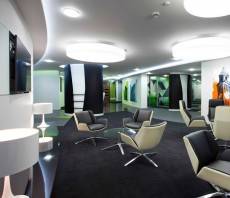September 30, 2015
Case studies illustrate key role of HR in transformational change 0
 A growing understanding of the importance of breaking down silos between workplace disciplines has resulted in initiatives such as the launch of the Workplace Conversation. Now a new report from the CIPD and the University of Bath, features four change management case studies that demonstrate what can be achieved when HR becoming an integral part of the team responsible for designing and implementing all the processes required during periods of transformational change. The report, Landing transformational change: Closing the gap between theory and practice features BBC Worldwide, HMRC, News UK and Zurich UK Life and reveal that in all these cases, the HR function was most successful when it facilitated action, enabling managers to inject their own customisation to suit the needs of their divisions, rather than adopting a more centralised approach to implementing change.
A growing understanding of the importance of breaking down silos between workplace disciplines has resulted in initiatives such as the launch of the Workplace Conversation. Now a new report from the CIPD and the University of Bath, features four change management case studies that demonstrate what can be achieved when HR becoming an integral part of the team responsible for designing and implementing all the processes required during periods of transformational change. The report, Landing transformational change: Closing the gap between theory and practice features BBC Worldwide, HMRC, News UK and Zurich UK Life and reveal that in all these cases, the HR function was most successful when it facilitated action, enabling managers to inject their own customisation to suit the needs of their divisions, rather than adopting a more centralised approach to implementing change.


















 Newly published research
Newly published research













September 22, 2015
John Fogarty reflects on a career in office furniture spanning five decades 0
by John Fogarty • Comment, Furniture, Workplace design
(more…)